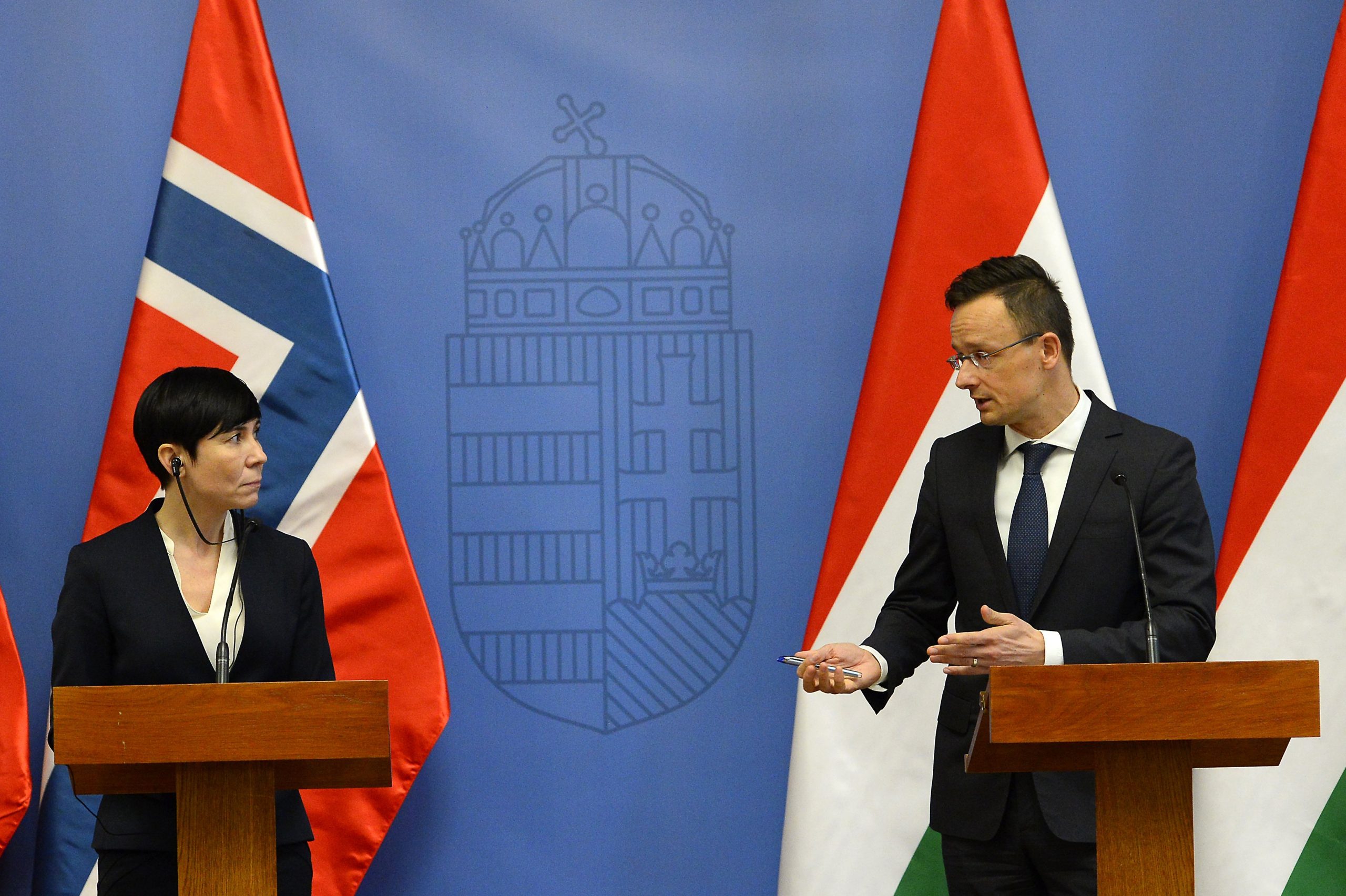
Hungary has become the only country in the EU to not receive the financial aid. The Orbán government is going to take legal action.Continue reading

The row continues over the 215 million euros in financial aid to which Hungary recently lost access. The Hungarian government had previously promised to take legal action over Norway’s refusal to pay the EEA and Norway Grants. Most recently, the Orbán administration published a resolution stating that the Kingdom of Norway owes Hungary money. However, according to Oslo, Hungary is not automatically “entitled” to the Norway Grants because this is “a voluntary contribution to strengthening European cohesion.”
As we previously reported, Hungary has permanently lost access to some EUR 215 million worth of EEA and Norway Grants, as the Hungarian and Norwegian governments could not agree on which organization would distribute a smaller segment of the grants intended for civil society (about 5 percent of the total sum), and the deadline for negotiations expired on July 20th.
The Hungarian government essentially refused to accept that the Ökotárs foundation, which scored the highest in Norway’s tender, should manage the civil funds, labeling the decision a “dictate” while the foundation itself a “George] Soros organization.”
Not long after, the Orbán administration even promised to take legal action over the seizure of talks with the Norway Grants on the distribution of funds in Hungary.
Hungary “was ready to accept any of the seven applicants except for Ökotárs, a Soros organization,” the ministry said. Norway “insisted on” Ökotárs, excluding internationally acclaimed applicants such as the Hungarian Red Cross.
Norway is violating its commitments as a member of the European Economic Area, the Orbán administration said.
The formal dispute between the two countries centers around Norway’s decision to yet again accept the tender of the Ökotárs foundation’s application to distribute the NGO segment of the funds. This is due to the fact that Ökotárs, despite a government decree in effect, continuously refuses to send a detailed monthly report regarding to whom, for what purpose, and how much money was allocated. Ökotárs -together with Norway- argues that this would jeopardize the purpose of the grant, which is to allow NGOs to use the money freely without government interference. The Hungarian government’s stance on the other hand, is that filing a report is a legal obligation and that they have no intention of meddling in how the money is spent, they simply want to be informed.
On Friday, the government issued a resolution stating that the Kingdom of Norway, while benefitting from the European Union’s single market, is in breach of its commitments under the European Economic Area Agreement and has still not paid the EUR 214.6 million in funding due to Hungary for the 2014-2021 period.
The Orbán administration has therefore asked Justice Minister Judit Varga, in cooperation with the Minister in charge of the Prime Minister’s Office, Gergely Gulyás, to inform the European Union institutions about Norway’s conduct and to examine how Hungary’s claim to the Norway Grants can be enforced legally, or in any other way.
Foreign Minister Péter Szijjártó, Innovation and Technology Minister, László Palkovics, and Finance Minister, Mihály Varga, were tasked with reviewing economic relations between Hungary and Norway.
The possible consequences of the resolution is not yet clear.
Hungary is not automatically “entitled” to the Norway Grants because they are “a voluntary contribution to strengthening European cohesion,” according to Népszava. This is what Oslo has communicated to several countries through diplomatic channels when they tried to clarify why the dispute with the Hungarian government had escalated, and why they claim that they will not provide any more grants to Hungary in this EU budget cycle, despite a decades-long agreement with the EU on the matter.
The paper points out that Norway has so far managed to reach an agreement on the distribution of NGO funds with all countries, even with the Polish government, which has similar reservations about George Soros.
Featured photo: Hungarian Foreign Minister Péter Szijjártó (right) and Norwegian Foreign Minister Ine Marie Eriksen Soreide hold a press conference after their meeting at the Ministry of Foreign Affairs and Trade in February 2019. Photo by Lajos Soós/MTI